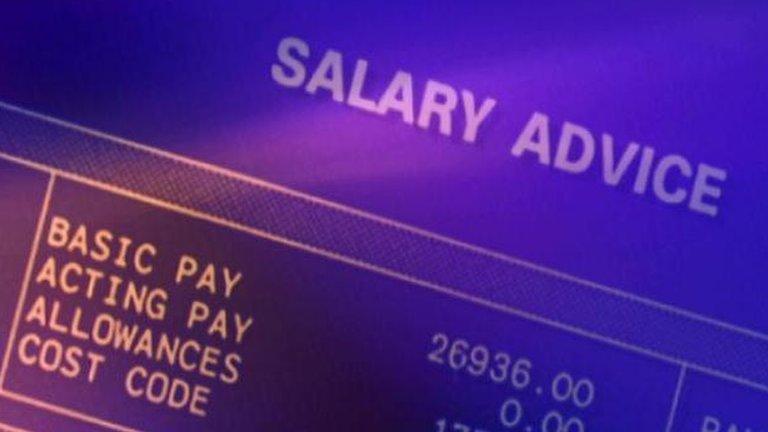Lib Dems seek end to pay cap for emergency services
- Published
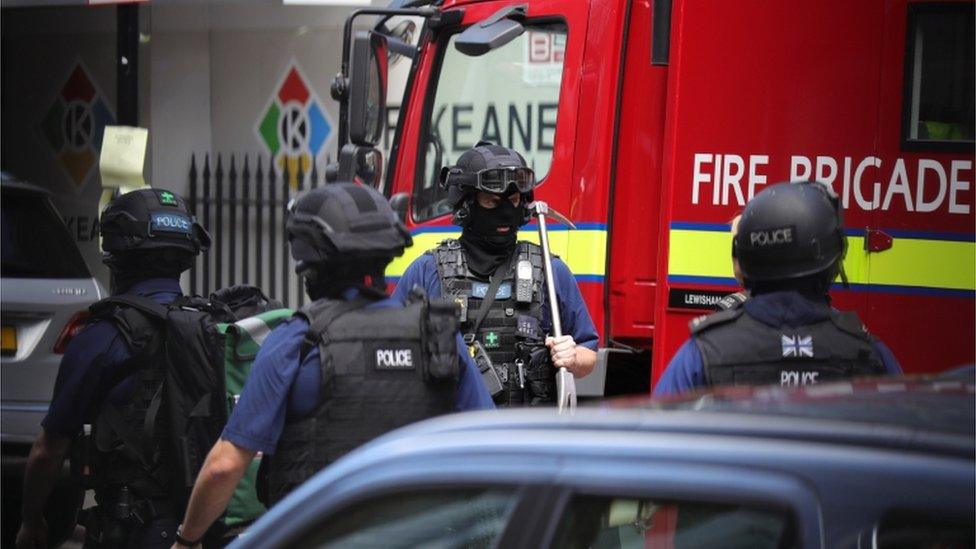
Police have been stretched by attacks in London and Manchester
The public sector pay cap should be scrapped in recognition of the work of the emergency services following recent disasters, says Tim Farron.
The outgoing Lib Dem leader said firefighters, police and medical staff "deserve so much better".
The pay cap, which has been in place since 2012, limits pay rises for public sector workers to 1% a year until 2020.
Ministers have said that wage restraint in the public sector helps protect jobs and repairs the public finances.
But Health Secretary Jeremy Hunt said earlier this month he had "a great deal of sympathy" for the case made by nurses for an end to the pay cap because of the "enormous amount of goodwill and time given free of charge" by staff.
Labour and the Lib Dems both pledged to scrap the 1% pay cap in their 2017 manifestos.
In the past few months there have been terror attacks in London and Manchester, and the Grenfell Tower fire disaster.
Mr Farron said the pay cap should be replaced by pay rises in line with inflation.
His party says the cap means that emergency service staff are seeing their wages cut in real terms, with the average firefighter set to be an estimated £1,423 a year worse off, in real terms, by 2020-21.
Mr Farron said: "Terror attacks in London and Manchester and the Grenfell Tower tragedy have reminded us how our emergency services deal with the most terrible of events with professionalism and courage. They deserve a pay rise, not a pay cut.
"This is about choices. During the election campaign, Theresa May reacted with indifference when asked why nurses were having to resort to using food banks.
"But in recent months we have seen time and again that our emergency services run towards danger when others run away. They deserve so much better.
"The Liberal Democrats call on the government to stand up for our firefighters, police, doctors and nurses and give them the pay rise they deserve."
'Recruit, retain, motivate'
Home Secretary Amber Rudd admitted last week that terror attacks in the past three months had left police resources "pulled very tight".
A Treasury spokesperson said: "The whole country truly values the extraordinary professionalism and courage that the police and the emergency services have shown in recent weeks and it is crucial that the public sector continues to recruit, retain and motivate the highest quality staff.
"Pay restraint is one of the many difficult choices the government has had to make to protect jobs while helping to put the UK's public finances back on track.
"The independent Office for Budget Responsibility estimates that our current pay policy will protect 200,000 public sector jobs."
- Published22 June 2017
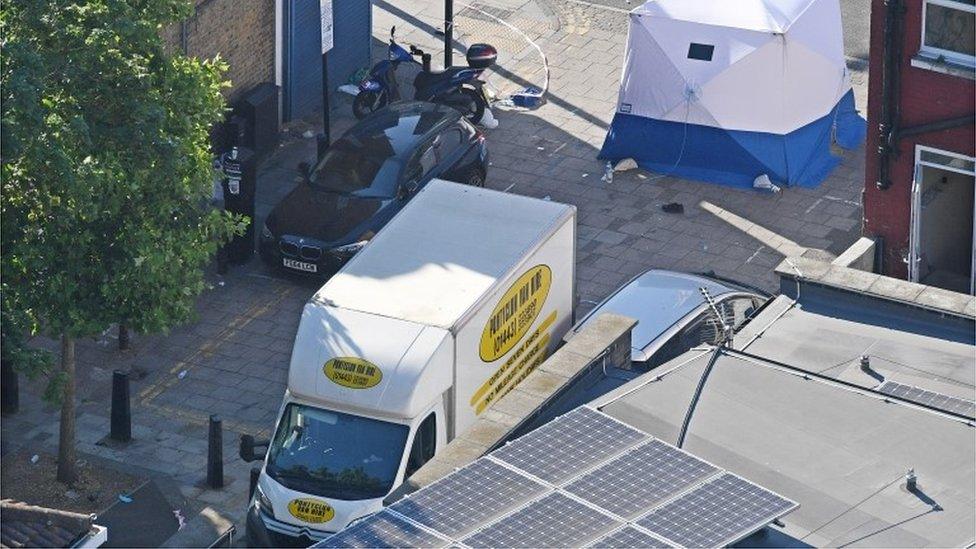
- Published15 June 2017
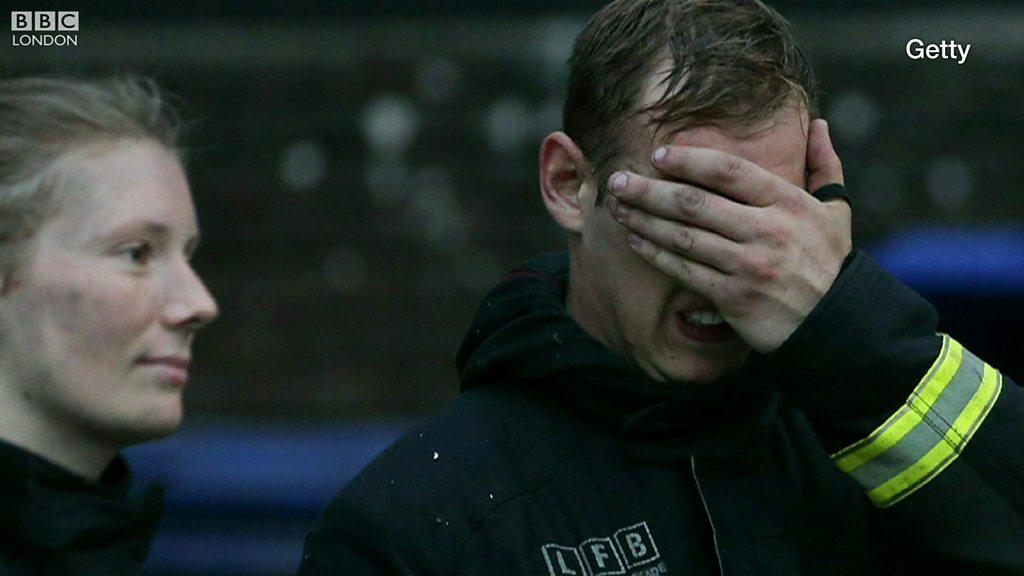
- Published13 June 2017
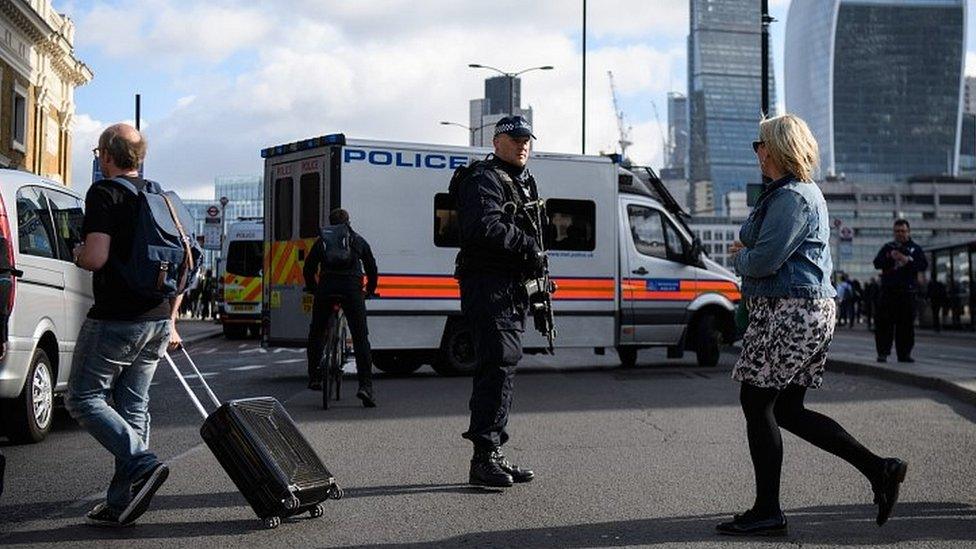
- Published28 March 2017
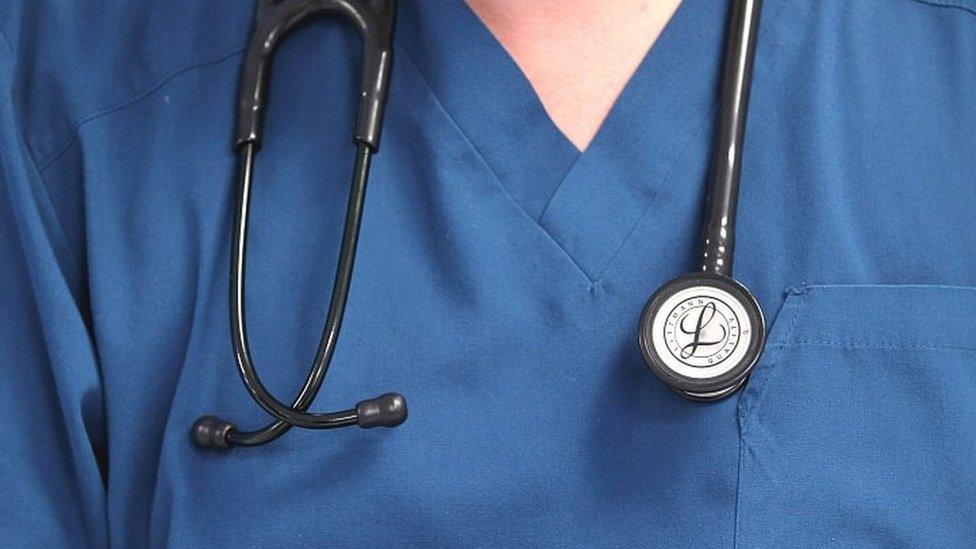
- Published20 March 2013
